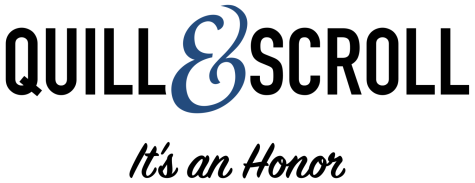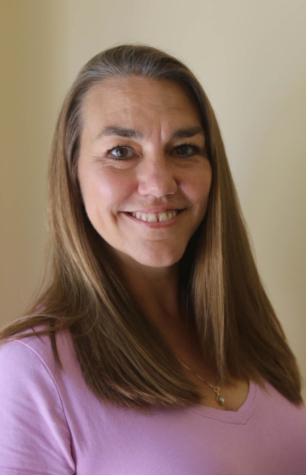Sept. 23, 2024
Our past three editions
Sept. 16, 2024 Vape use • Apple release • Political endorsements
Sept. 9, 2024 Student disconnect • Generative AI • Summer trends
May 6, 2024 Encampments • El Niño • Phones in school
THE LEAD
Instagram rolls out changes to teen accounts
Users under 16 will now need parental approval to change some settings
Instagram is launching, for the first time, specifically designed accounts for teenagers that include privacy measures and, for users under 16, parental permissions.
Existing accounts and new accounts alike will be affected, Good Morning America reported. The rollout started Tuesday and will continue for the next few months.
Among the upcoming changes is setting all teen accounts to private by default. Teens under the age of 16 will need parental permission to change this setting. Teens will only be able to message people they are already connected with and parents will be able to see who their teens have been messaging recently.
The rollout also includes a “sleep mode” from 10 p.m.-7 a.m. that limits access to the app.
Meta, Instagram’s parent company, is expanding its age-verification efforts to use artificial intelligence to detect age, NPR reported.
What you can do—
As the in-app changes roll out they will affect tens of millions of Instagram users, including many in your school community. As accounts are converted, talk to students about the changes they notice and how they feel about them. Families will likely have different approaches to using parental controls, so take some time to talk to a variety of people about the changes.
There is an interesting balance between safe social media practices and limiting free expression at play with these changes. Experts say Instagram’s changes could cause problems for young people in abusive or otherwise problematic situations, NPR reported. The information parents can view with the new account settings is limited, but a story exploring how students feel about the changes would be interesting.
Noteworthy
Flu vaccine, COVID-19 booster season is here
Explore science behind vaccines, where they are available
Every fall there is a massive public health push to get people vaccinated with updated flu and COVID-19 shots. This year is no different.
The Centers for Disease Control and Prevention, or CDC, recommends that everyone over 6 months old receive a COVID-19 vaccine this season. The new versions of the vaccine target newer variants.
COVID-19 vaccines provide the most protection in the first weeks to months after vaccination, CNN reported. If you were recently infected, some experts recommend waiting to get an updated shot.
The flu vaccine is also recommended for anyone over the age of 6 months. The CDC recommends getting vaccinated in September or October.
What you can do—
There may be community, or even school-based, vaccine events on the horizon that you could report on. The public health push happening right now is also a good entry point into some medical reporting about how vaccines work and why they are important. There are plenty of immunology experts to talk to.
There is also a lot of data surrounding both COVID-19 and flu vaccines. Now is a good time to try your hand at data visualization and storytelling.
What’s viral
Consumption of ultraprocessed foods tied to increased risk of type 2 diabetes
Look into the health of school lunches, food options nearby
There is a growing body of research showing that eating more ultraprocessed foods like chips, soda and ice cream can have adverse health effects, CNN reported. A study published in The Lancet Regional Health – Europe last week showed a connection between the consumption of processed food and the risk of type 2 diabetes.
Though the study can’t show that consuming ultraprocessed foods directly causes type 2 diabetes, it did find a 17% increased risk for developing the condition for every 10% increase in the amount a person’s diet is made up of ultraprocessed foods.
Ultraprocessed food are heavily marketed and accessible, making them easy choices for many consumers.
What you can do—
There are alternatives to the heavily processed foods that have known negative health effects — experts recommend looking for foods with simple ingredient lists, CNN reported. Using the new study as a jumping off point, possible coverage could include an analysis of what students are eating for lunch. There is a wide variety of legislation and guidelines that school lunches follow, so it would be interesting to compare these to what is offered at your school.
IT’S AN HONOR
Student Advisory Board applications extended to Sept. 26
Do you want to serve your fellow student journalists and Quill and Scroll members? Join the Student Advisory Board for 2024-25. Applications will now close Sept. 26.
SAB members will work on projects including establishing a regular communications channel for editors and other student journalists to discuss problems, successes, and coverage; and working on projects and activities that can aid Quill and Scroll chapters.
It’s always membership season
Don’t forget you can nominate members year round
Have students who want to join Quill and Scroll or do you want to avoid the spring rush? Have a fall induction ceremony! Nominate students for membership order pins, cords and other Quill and Scroll materials and memorabilia.
We haven’t changed the ordering process from last year. For those wanting to ditch the paper version, you just need to select the form based on how you would like to pay. We have one version for credit card and another version for check or purchase order. (We’ve added buttons for ease of finding these.) As usual, credit card payments are charged $4.49 per order for processing.
‘Ask a Lawyer’ webinar set for Oct. 3
Register now
Be prepared to take on any challenges this year may bring. Join us for an open conversation about the big legal issues for student media co-sponsored by SPLC, NSPA and Quill and Scroll. After a brief introduction, SPLC lawyers will help you with whatever questions you bring. Join with a question or just for the listen!
This webinar requires preregistration.
Submit your YEC entries now
Only nine days until contest closes
The 2024 Yearbook Excellence Contest is open for entries. The cost for each entry in all 39 categories is $8, and schools will be divided by size — Class A for 1,000 or more students, and Class B for 999 or fewer students.
Entry deadline is Oct. 2, and here is a link to complete descriptions of those 39 categories and how to pay for the entries. Please note, we’ve added six new categories — including three for beginning students and three for middle schoolers.
Judges will award first, second and third places in each category for each class, and they’ll award honorable mentions so that between 10 and 15 percent of all entries are recognized in every category. All students named as award recipients will be eligible to apply for Quill and Scroll student scholarships in May of their senior year.
Quill and Scroll administrators will then tally points (5 for first place, 4 for second, 3 for third and 1 for HM) to determine a Blue and Gold Award winner for each class. Last year’s overall winners were Wando High School in Mount Pleasant, South Carolina (Class A) and Christ Presbyterian Academy of Nashville, Tennessee (Class B). Quill and Scroll hopes to announce winners by Dec. 1, 2024.
Here’s a complete list of last year’s winners.
National High School Journalism Convention travels to Philadelphia
This fall the nation’s largest gathering of high school journalists, advisers and journalism teachers will be held Nov. 7-10 at the Philadelphia Marriott.
The JEA/NSPA National High School Journalism Convention offers hundreds of instructional sessions, keynote speakers from national newsmakers, dozens of media critiques, JEA’s popular on-site media contests and the announcement of NSPA national winners for Pacemaker Awards and Individual Awards. NSPA also offers a convention Best of Show competition that celebrates current student media work.
Registration is open now. The early bird discount ends Sept. 26 and online registration will close Oct. 17.
Just a thought
We had the best laid plans, but they did go awry.
We are extending our Student Advisory Board applications because we haven’t been able to publicize them directly to those who have been inducted within the past year.
We switched the mass email service we use for the Monthly Scroll, but it hasn’t worked exactly how we thought it would. And yes, we even gave this a two-week buffer.
We have been assured we will be able to have the Monthly Scroll out by early next week. So for now, these applications will be due Sept. 27. Please encourage your students to apply!
Thanks!
— Lori Keekley





